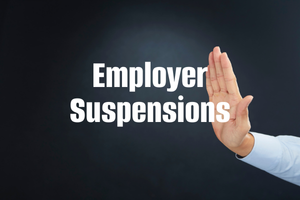When an employee or claimant is out of work because of an injury or some other condition that prevents the employee from performing his/her job duties, the issue regarding ability and availability is raised. Unemployment benefits can be denied if the worker is found not to be able and available for any type of work at all. The issue of able and available and actively seeking work in the labor market is between the
state and the claimant only and goes to the claimant’s ongoing eligibility. This has nothing to do with any employer in the unemployment claim process; the employer is notified as a courtesy, but nothing the employer would provide is relevant to whether the claimant is able and available. Simply put, able, available, and actively seeking employment is a claimant eligibility issue only to determine if the claimant can perform any work and what the claimant can do for any employer, not just for the current employer.
The following are factors the state will consider in determining if the claimant is able and available:
- Does a labor market exist for the claimant’s skills? Is there suitable work? Note that the claimant does not need to show that there are actual jobs available for a person with those skills, only that the jobs exist in the labor market. The claimant does not need to show that there are jobs which utilize the claimant’s skill sets available from the claimant’s last employer. The jobs that the claimant’s last employer has or does not have are irrelevant; it is whether or not a job exists in the labor market.
- Is the claimant physically able to do the work within that labor market? For example, if the claimant has physical restrictions, which prevents him or her from doing the job for which the claimant was hired, this does not preclude the claimant from being able to perform a job that he or she is qualified to do with another employer. The claimant therefore would be eligible for unemployment benefits if unable to find work.
- Does the claimant have a means to get to the labor market? Is transportation available to the claimant either by way of private vehicle or public transportation? Note if the claimant made a reasonable effort to find transportation and it was not available, this may be excused.
It must be pointed out that simply being on an approved medical leave of absence; receiving workman’s compensation benefits; or receiving short term or long term disability payments,
does not automatically disqualify the claimant from receipt of unemployment benefits.
Thank you to our partner, Equifax, for providing this content.


